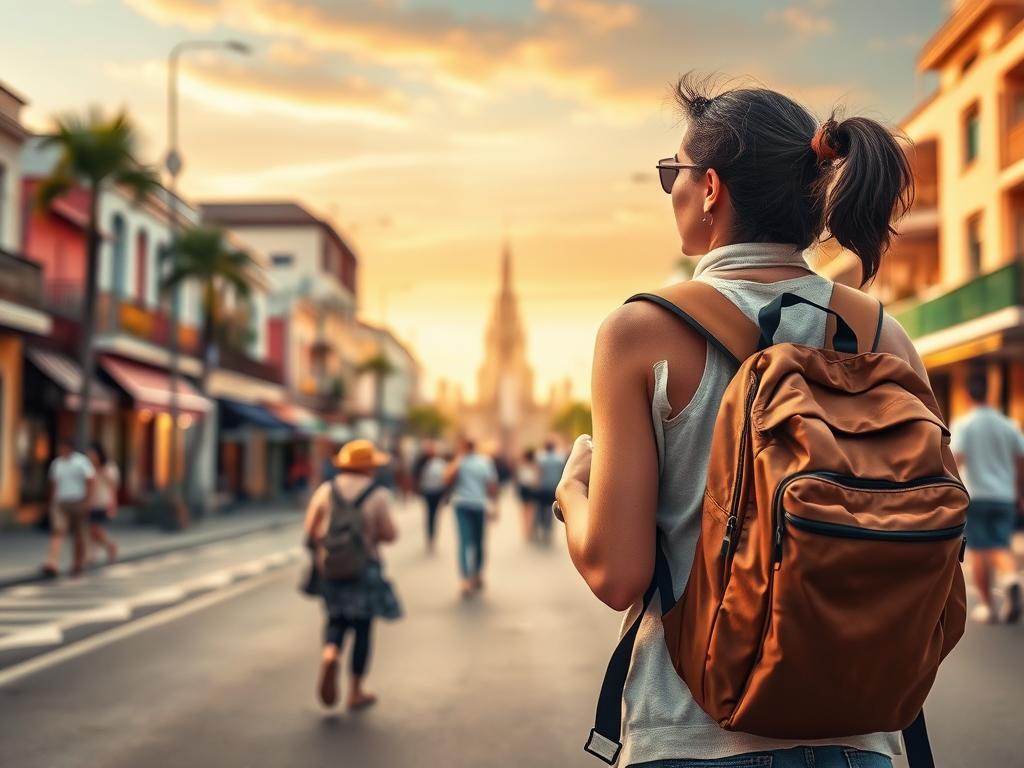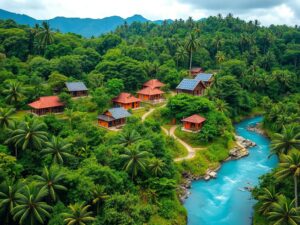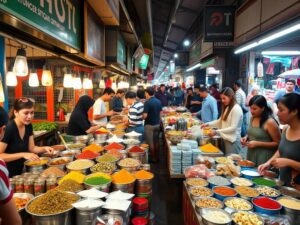Every solo traveler knows that feeling of excitement mixed with a hint of anxiety as they embark on a new adventure alone.
Traveling solo offers a unique sense of freedom, a chance to discover new places, and an opportunity for introspection. Yet, this thrilling journey also comes with its own set of challenges, especially when it comes to safety.
With uncertainties lurking in unfamiliar environments, the question often arises: how can I ensure my safety while exploring the world alone?
This article aims to provide essential tips and protective measures for solo travelers to help navigate the landscape of safe travel. Remember, preparation and awareness are your best allies, ensuring that your adventures are filled with joy rather than worry.
Let’s explore how you can prepare and travel wisely to keep yourself safe and secure.
Key Takeaways
- Over 50 solo travel safety tips emphasizing prevention and awareness.
- Importance of thorough pre-travel research and understanding destination safety.
- Acquiring safety products like anti-theft bags and RFID-blocking wallets.
- Managing finances wisely by using credit cards that avoid foreign transaction fees.
- Staying connected with loved ones by sharing travel plans and emergency contacts.
- Understanding the importance of travel insurance for unexpected events.
- Practicing awareness and caution in unfamiliar environments to enhance safety.
Understanding the Risks of Solo Travel
Traveling alone can be an exciting adventure, yet it comes with unique safety challenges. Being aware of the risks involved is crucial for maintaining personal security while on the road. Safeguarding oneself begins with understanding common safety concerns and recognizing unfamiliar environments. Educated decisions often lead to a more secure solo journey.
Common Safety Concerns
Solo travelers frequently face issues such as theft, personal safety, and the difficulty of navigating new locations. To address these concerns effectively, adopting traveling alone safety precautions can be beneficial. Simple measures like sharing your location with trusted individuals will enhance your security. Always keep important documents handy, and consider enrolling in the Smart Traveler Enrollment Program for additional support while abroad. Researching any scams that may target travelers can also offer vital protection.
Recognizing Unfamiliar Environments
Understanding the layout of your destination can greatly enhance your safety. Familiarize yourself with local customs, which may include appropriate dress codes and behaviors. This is vital not only for blending in with the local culture but also for signaling that you understand the environment, reducing vulnerability. Utilizing platforms such as TikTok and YouTube to explore other travelers’ experiences can provide valuable insights into safe neighborhoods. For more detailed information on practical solo travel safety advice, visit this link: essential safety tips.
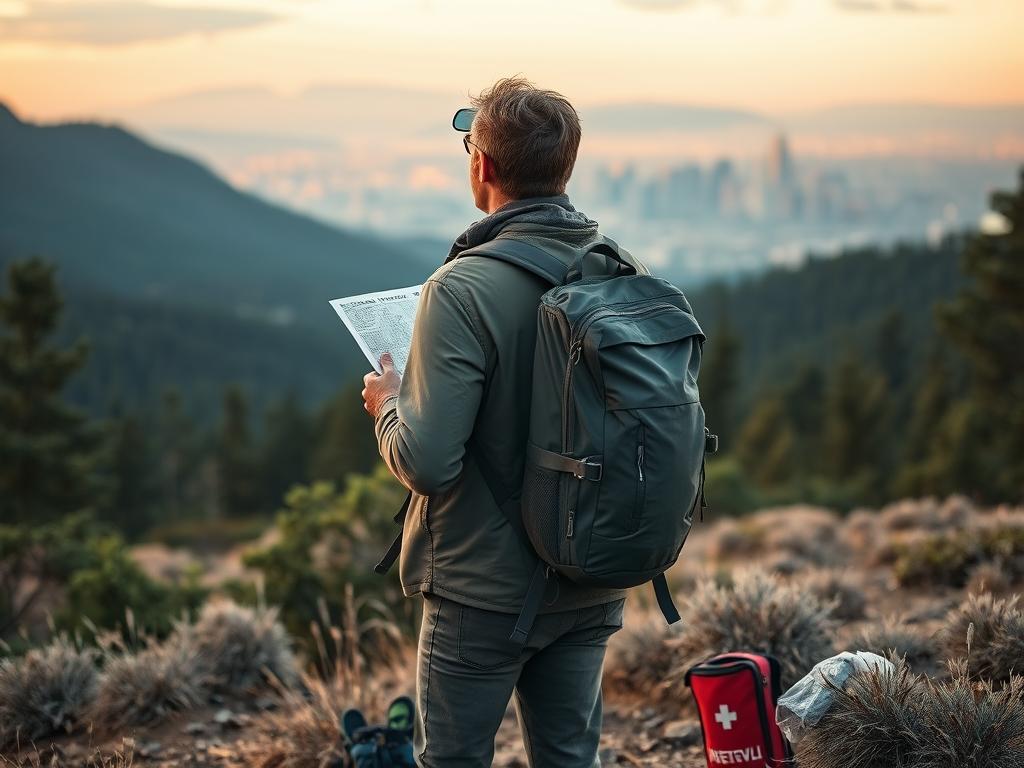
Preparing for Your Trip
Preparation is fundamental for anyone seeking to embark on adventures alone. A well-planned trip significantly enhances your experience and safety. Research is a vital aspect of ensuring safety as a solo traveler. Gathering information about your destination helps identify potential hazards and allows for informed decisions throughout your journey.
Research Your Destination
Diving into in-depth research about your travel location equips you with tailored knowledge. Check the local laws, health recommendations, and cultural practices. Understanding the safety ratings of different areas can guide you towards more secure neighborhoods and activities. Consider these essential safety tips for solo adventurers when assessing your destination:
- Explore safety reviews from other solo travelers on forums and travel websites.
- Familiarize yourself with local customs and languages, enriching your ability to navigate effectively.
- Check for any travel alerts or advisories from reliable sources like the US Department of State.
Create a Detailed Itinerary
A detailed itinerary not only provides structure to your travels but fosters a sense of accountability. It allows you to plan your routes, accommodations, and activities, contributing to your overall safety. Include information such as:
| Day | Activity | Location | Contact Info |
|---|---|---|---|
| Day 1 | Arrival | Hostel | +1 234 567 890 |
| Day 2 | City Tour | Downtown | +1 345 678 901 |
| Day 3 | Local Cuisine Class | Culinary Studio | +1 456 789 012 |
Documenting your daily activities and travel plans allows for better organization while providing someone at home with your itinerary, enhancing your safety during the trip. In addition, including transportation details and accommodation addresses aids in navigating unfamiliar grounds and keeps you connected with reliable resources.
Packing Smart for Safety
When it comes to solo travel, packing smart plays a significant role in ensuring a safe and enjoyable journey. Preparing effectively helps mitigate risks and provides peace of mind for solo adventurers. The right items can enhance your comfort and keep you organized while on the move. Below are some essential safety tips for solo adventurers to consider when preparing for their next trip.
Essential Items to Bring
Bringing the right travel gear is vital for enhancing safety. Here is a list of items every solo traveler should consider adding to their packing list:
- First Aid Kit: A compact kit with necessary supplies is essential for addressing minor injuries.
- Portable Water Purifier: Staying hydrated is crucial, especially in unfamiliar places.
- Personal Security Tools: Items like a whistle or pepper spray can help in emergency situations.
- Portable Charger: The Anker Portable Charger is excellent for keeping devices powered, suitable for multiple phone models.
- Universal Travel Adapter: The Epicka Universal Travel Adapter can charge several devices across countries.
Keeping Your Valuables Secure
Solo travelers must take protective measures to secure their valuables. Here are effective strategies:
- Utilize anti-theft bags, like the Arden Cove Carmel Convertible Backpack, which features RFID-blocking materials to protect personal information.
- Store your cash and documents in a money belt, such as the Molarun Travel Money Belt, to keep them hidden and secure.
- Ensure quick access to crucial documents by organizing them in a travel wallet or a cardholder like the Baggallini RFID Card Case.
- Limit your clothing to versatile options, allowing you to mix and match outfits, leading to numerous combinations and conserving space.
- Packing light, especially using only a carry-on suitcase, significantly reduces the chance of lost luggage and makes handling unforeseeable challenges easier.
Following these essential safety tips for solo adventurers not only enhances safety and preparedness but also contributes to an enjoyable travel experience. For a comprehensive guide on packing essentials, visit this article on must-have items for female travelers.
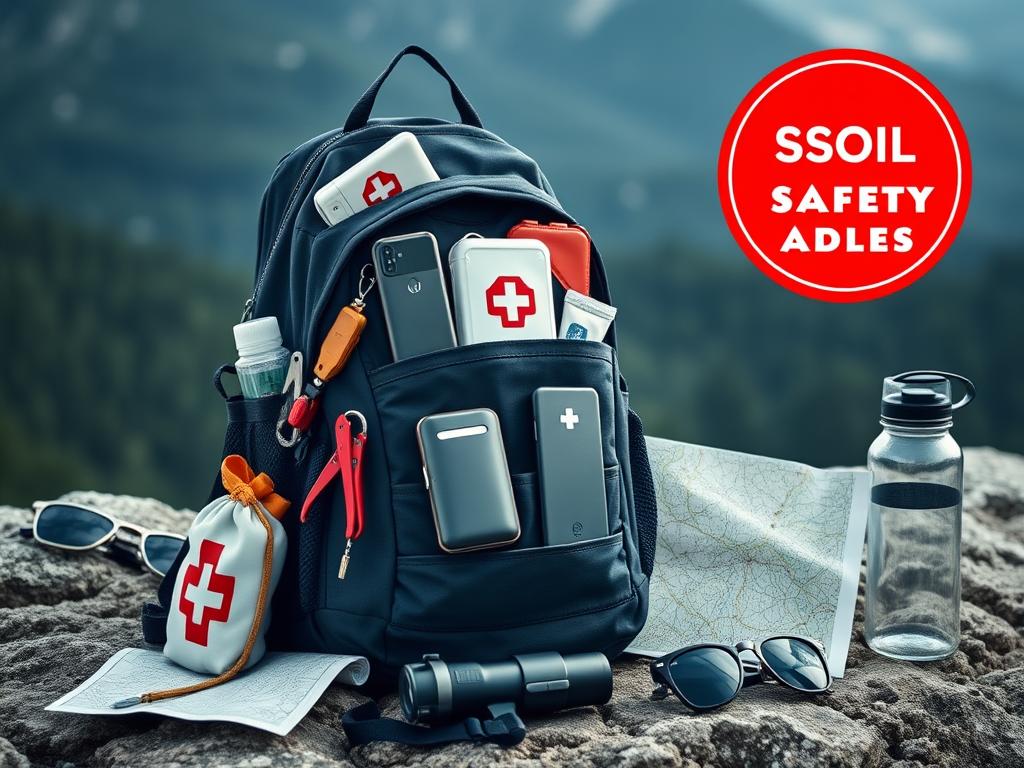
Staying Connected
Maintaining communication while traveling solo enhances safety and provides peace of mind. A well-structured plan for staying connected can make all the difference in ensuring a secure experience. Utilize mobile apps designed specifically for traveler safety, allowing you to track your location and send emergency alerts if necessary. These tools can significantly increase your chances of staying safe while traveling solo.
Use of Mobile Apps for Safety
Several mobile applications focus on the safety needs of travelers. Apps like SafetyWing and Life360 allow users to share real-time locations with designated contacts, providing an added layer of security. Using these tools can keep loved ones informed of your whereabouts, which is especially crucial when exploring unfamiliar environments.
Sharing Your Itinerary with Trusted Contacts
Whether it’s a weekend getaway or a month-long adventure, share your comprehensive itinerary with trusted contacts. This practice ensures someone knows your schedule and can respond promptly if something seems amiss. Keeping your itinerary private helps maintain your safety while making plans for exciting adventures.
Emergency Contacts and Local Resources
Establishing a list of emergency contacts and local resources before traveling is fundamental. Research local hospitals, police stations, and embassies relevant to your destination. Familiarizing yourself with these emergency contacts and local resources enhances your ability to react promptly in unexpected situations. Prepare yourself for any challenges by ensuring you have up-to-date information about local services available where you’re headed. Consider reviewing resources to facilitate your trip, such as this helpful guide on top solo travel destinations. Protect yourself and enjoy your journey by becoming knowledgeable about the local landscape.
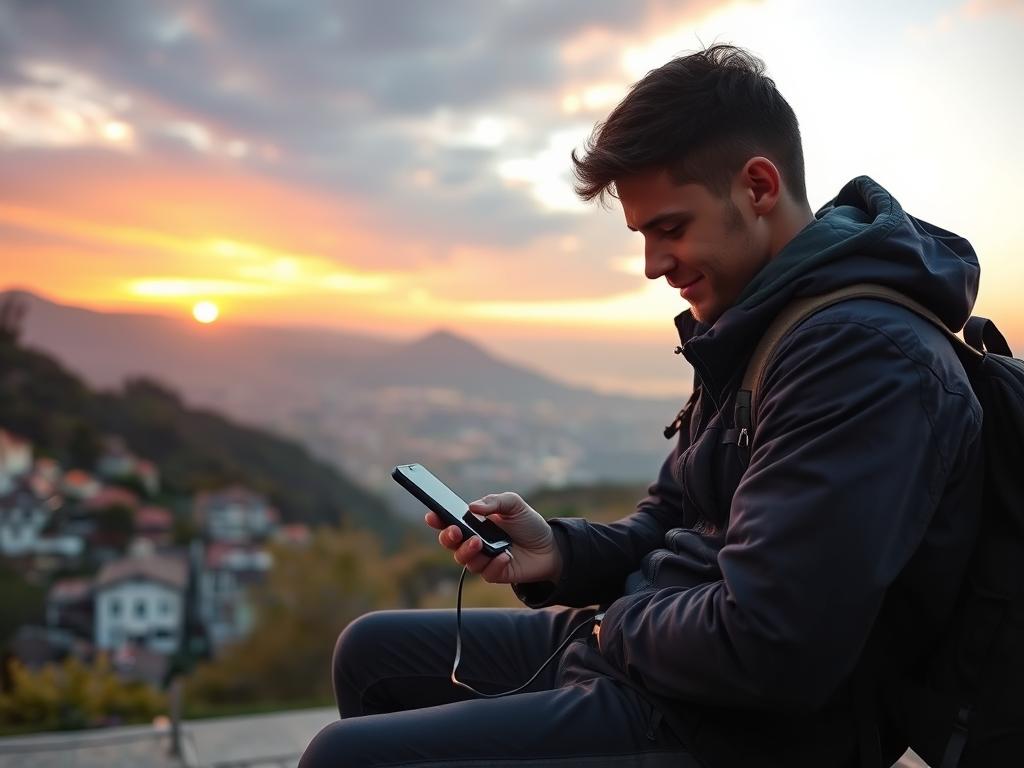
Choosing Accommodations Wisely
Selecting the right accommodation holds high significance for solo travelers. Safety should be a primary consideration alongside cost. In a recent survey, 49% of solo travelers prioritized safety when choosing a place to stay. Understanding the differences between hostels and hotels can help in making an informed choice.
Hostel vs. Hotel: What to Consider
Hostels often present a communal atmosphere that can foster connections among travelers. They may also provide cost-effective options for budget-conscious explorers. Nevertheless, some hostels lack adequate security measures, which might not align with protective measures for solo travelers. On the other hand, hotels generally offer a higher level of security, with features like keycard access and staff on-site around the clock. About 53% of solo travelers prefer accommodations with 24-hour reception or security services, indicating a clear demand for such features.
Location, Location, Location
Choosing a safe neighborhood is critical when determining where to stay. Opt for locations that are well-lit and populated, allowing easy access to public transportation. Research demonstrates that 62% of solo travelers view securing their belongings as a top travel essential. This highlights the need for accommodations that prioritize guest security. Make sure your lodging is within a safe area, ideally close to your planned activities or attractions. Planning your arrival during daylight hours allows for a better assessment of the area’s safety.
In addition, consider using technology to enhance your safety measures, such as a VPN for online privacy. Carry travel safety gear like a hidden cash stash and anti-theft day pack. Effective solo traveler safety tips also include keeping important documents secure and having an emergency plan in place.
Navigating New Environments
Exploring new locations can be exhilarating, yet demands a level of caution. Following solo travel safety advice becomes essential in unfamiliar settings. Trusting your instincts plays a pivotal role, particularly when something feels amiss. If an area feels uncomfortable or unsafe, consider changing your route. This ability to listen to your inner voice helps ensure a rewarding journey without unnecessary risks.
Trusting Your Instincts
Your intuition often senses danger before your mind processes it. Always remain alert when navigating through crowded places or busy transport hubs. Taking precautions can aid in preventing unwanted situations. Use mobile apps to keep track of your location and surroundings while traveling. Connecting with other travelers also provides a sense of security. Engage with hostels offering social events, perfect for forming friendships and sharing adventures.
Using Public Transportation Safely
Public transportation can be an effective way to explore a new city while managing your finances. When selecting buses or trains, consider busy routes and hours that are safer due to higher passenger volumes. Stay aware of your belongings to thwart any pickpockets.
- Keep valuables close and avoid displaying expensive items.
- Blend in; dress like the locals to avoid drawing attention.
- Familiarize yourself with the local transportation system to ensure smooth travels.
- Maintain a communication line with friends or family, sharing your route and estimated arrival times.
Utilizing these strategies fosters a more secure experience. Whether documenting your adventures or sharing insights through social media, maintaining a level of awareness proves essential. Prioritize safety, allowing for both memorable experiences and personal security.
Managing Your Finances
When embarking on a solo travel adventure, managing your finances is crucial to ensure a smooth and worry-free experience. One of the essential components of budgeting for safety is understanding the costs associated with accommodation and daily expenses. The average costs for accommodations can be staggering, with rates varying significantly depending on the location and season. By planning ahead and seeking out options that fit within your budget, you can avoid overspending and potentially running into financial trouble.
Budgeting for Safety
By focusing on budgeting for safety, solo travelers can prioritize their financial strategies. Keeping your cash limited is wise to prevent loss or theft, while using credit cards can provide a safer alternative. Look for credit cards that do not charge foreign transaction fees, allowing you to save more as you travel. Moreover, consider using various accommodation platforms to find the best deals, such as Cozycozy.com, which aggregates from multiple sites. Additionally, taking advantage of loyalty programs and searching for off-peak travel times can yield significant savings.
Using Credit Cards vs. Cash
Deciding between using credit cards vs. cash depends largely on personal comfort and the destination’s infrastructure. Many solo travelers find that using credit cards can be safer, especially since they can easily track spending and limit the amount of cash they carry. However, it’s also beneficial to have some cash for smaller transactions or in areas where cards may not be accepted. Keeping additional cash hidden and accessible emergency funds can provide peace of mind as you explore new locales, ensuring you’re never caught off-guard financially during your travels.

